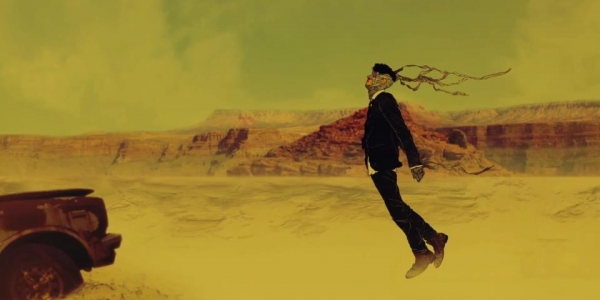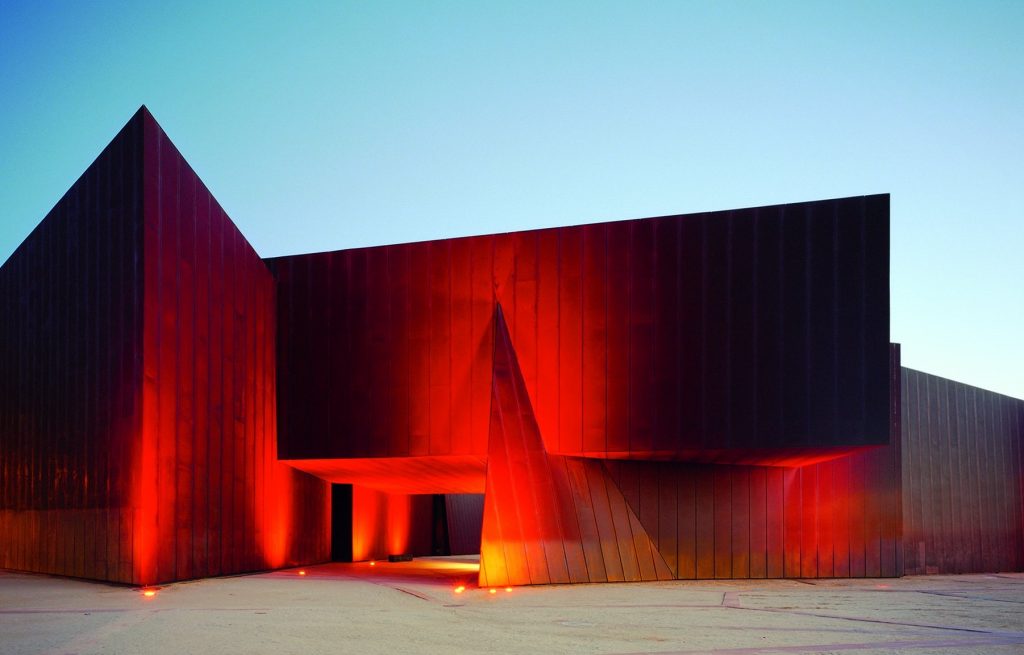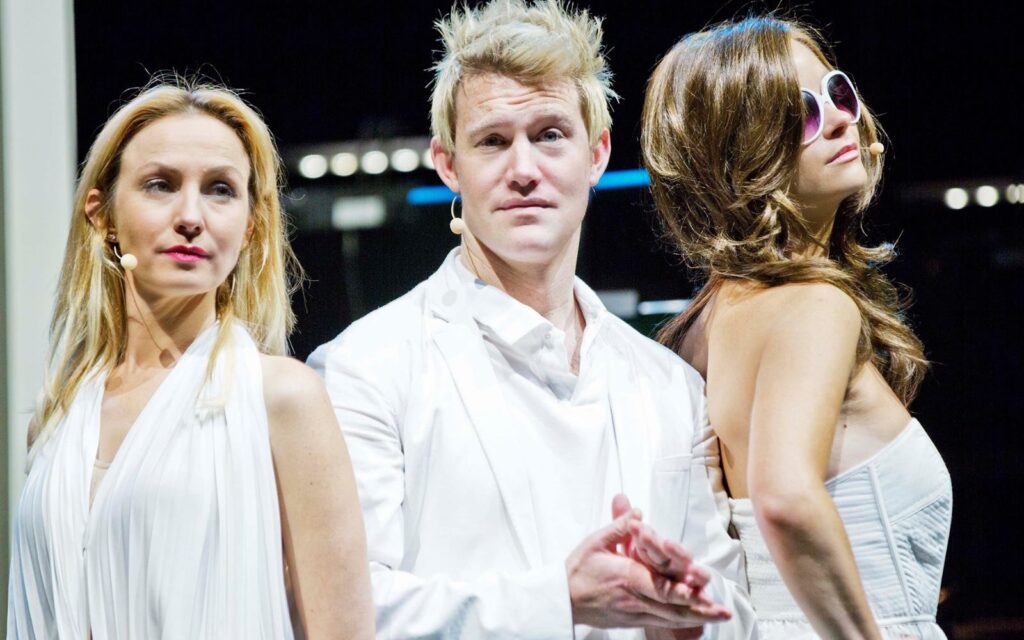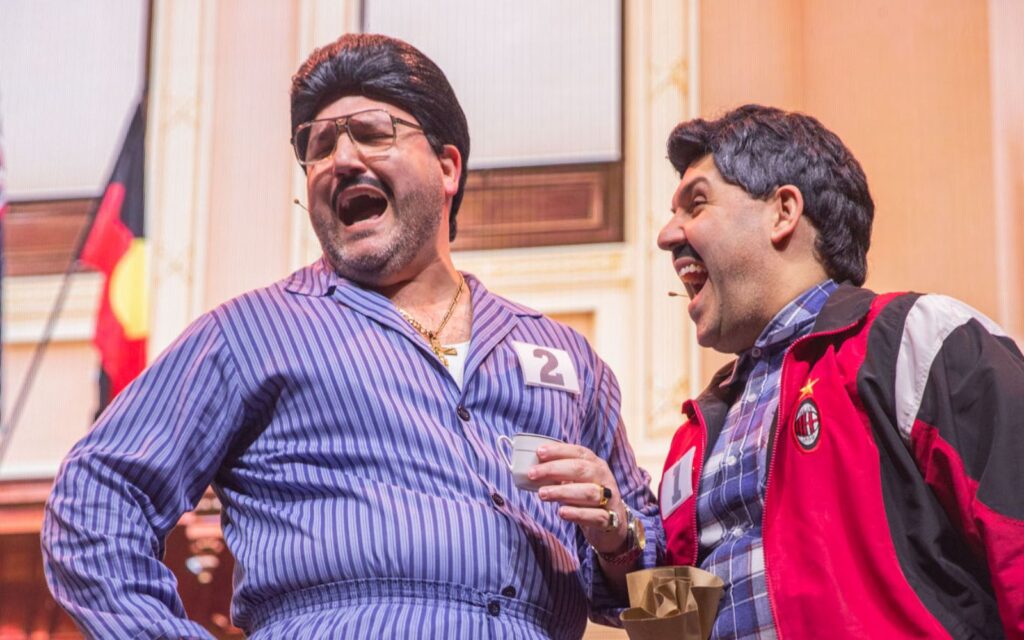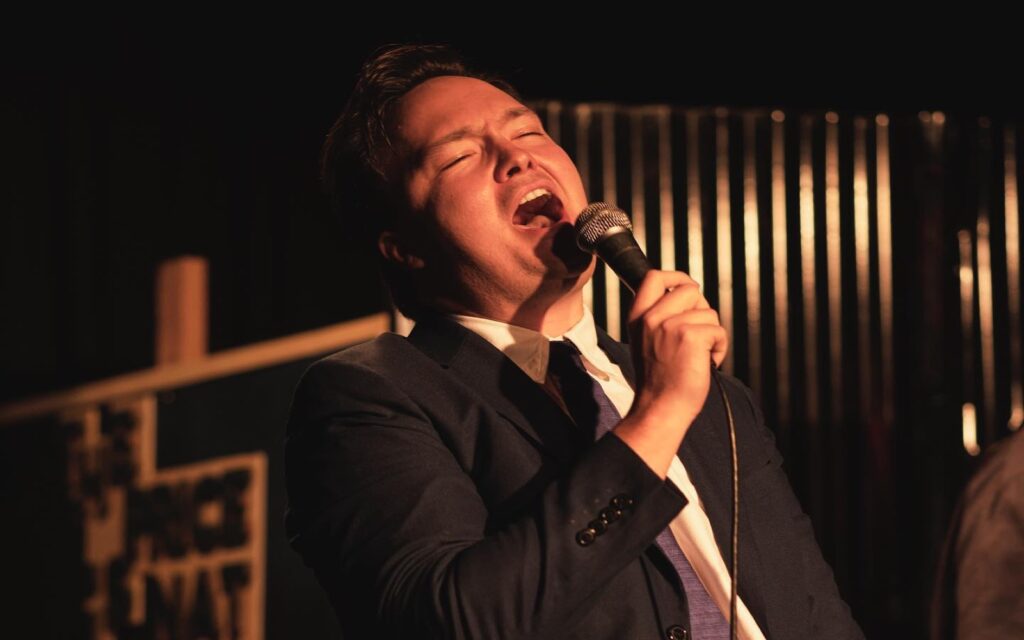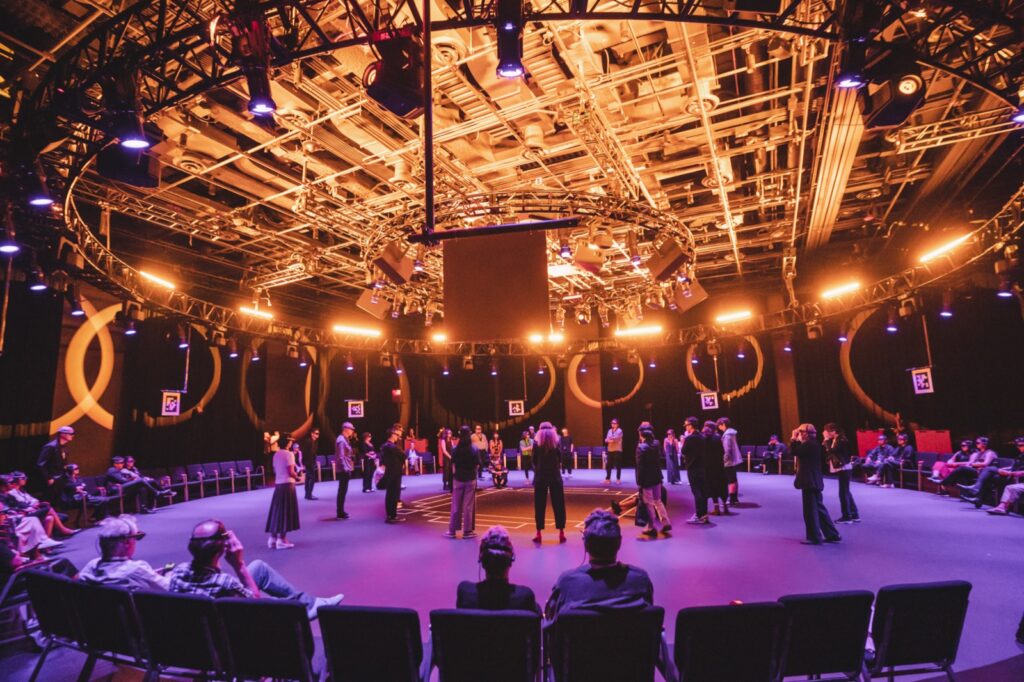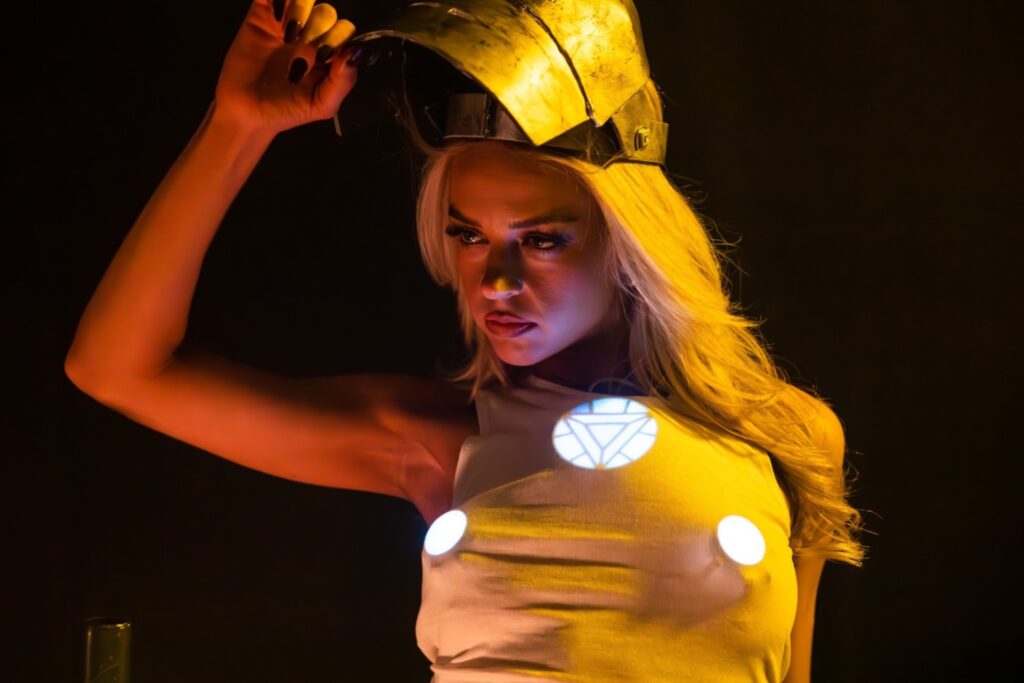How many can say they’ll release two major motion pictures and play to half a million adoring fans across Europe within the space of a few months? The mind behind the theatrical scores for both Guardians Of The Galaxy Vol. 2 and Atomic Blonde, producer, musician and film composer Tyler Bates finds himself chatting from a lounge at Los Angeles International Airport, where he’ll soon be boarding a flight to Budapest to kick off a three-and-a-half-week Marilyn Manson summer European tour.
“I can’t even relax enough to even realise it’s happening because it’s so busy at work,” Bates says. “I was literally just trying to run out the door to get to the airport today, and I had to cut three guitar tracks right before I ran out the door. That’s an awesome – stressful, but awesome – problem to have right now, because it’s not always been that way and I’m very thankful for everything that’s going on right now.”
Bates has seen a gargantuan year. Having just completed lead guitar work on Marylin Manson’s latest album, Heaven Upside Down, Bates has been caught in the flux of film, producing a thousand minutes’ worth of demos and 17 months’ work for films like Guardians Of The Galaxy Vol. 2. On the set of the original Guardians, Bates and his close-knit team of colleagues were pulling 100-hour work weeks for 4 months. It’s a mammoth group effort, and he appreciates everyone helping to “hammer it out on the eleventh hour”.
“I think the first and foremost aspect of writing music for film is that it is all about storytelling and emotion,” Bates explains. “To really understand the sensibility of your filmmaker and the audience they’re making the film for. Guardians, we hope we’re making it for everyone. That’s why those movies, beyond what you see visually, they connect on an emotional level which is working. We are completely in-sync about expressing emotions through music and the context of movies, even if it does feature a tree and a talking raccoon. The emotions feel real, and it’s paramount to everything – and of course, soundscape, they’re effective when they’re matched perfectly with how the film is shot and the texture of the film itself is really extended through music. Instead of the music sort of being an additional element, it should really be a congruent or confluent element.”
Be it Watchmen, 300 or Halloween, Bates is no stranger to a challenging spectacular. With a resume of rich realms like that, is there something that attracts him to the darker arts?
“Manson may appear dark, but I probably laugh more in a room with him than anyone,” Bates laughs. “Darkness is something that everyone carries with them somewhere. I can relate to a lot of my experiences as a child and some of them were pretty scary. I grew up in a house where there were two exorcisms performed on it. Whether it’s something you’re ready to believe or not, it’s pretty freaky, and that was a house out in the woods, so I was terrified a lot of the time. Being able to go back and work on films – especially things like Dawn Of The Dead and Halloween, where I never imagined in a million years that there would be a sequel and that I would write music for it – I mean, that’s pretty awesome.”
The proudest moment for any one film, however, are those moments “that no one would ever publicly know”. Whether it’s a fist-bump shared with Rob Zombie when a scene works perfectly, or a song taking shape with an artist like Alice In Chains’ Jerry Cantrell, it’s the excitement of the moment itself that counts most to Bates. Describing score creation as “a triathlon”, Bates finds himself constantly fuelled by these moments along a strenuous – but rewarding – process.
“I did not come through the business working for someone, or with financial backing,” Bates explains. “I’ve painted a lot of houses in my life, and I did a lot of low-rent band tours as a musician. I grew very comfortable operating without a safety net. As an artist – perhaps out of ignorance – I’ve just always tried to do what I think is exciting to me, and when what really is going to compliment whatever it is I’m working on and who I’m working with. Sometimes it leads to something that appears to be extreme by someone else’s standards, but to me, it’s what’s necessary.”
Bates cites Zombie’s The Devil’s Rejects as one of his favourite scores. With its “filthy and demented” atmosphere, his director pushed him to extreme possibilities, bettering his craft in the process. Understanding the importance of constantly learning, Bates is humbled by his experiences – but determined to push further, with greater tenacity on each project.
“You know, people have a bucket list – I’m kind of living it,” Bates says. “I was able to write the music for my favourite NFL team and then go play the national anthem at their stadium for, like, 15,000 people. That was pretty cool. What I would really like to do is expand on the live show aspect of my music, presented to audiences in a way that I think is very interesting and exciting. I’m developing that model I’d say, right now, and hopefully 2018 I’ll start to do some concerts of my film music.”
“We got our toe wet last week in Spain, but that’s nothing compared to what I want to do,” Bates continues. “We’re just working out right now, to get everybody that’s necessary on board, but it’s just the prospect of doing something like that that’s really exciting. It’s also a true honour, to have people take you seriously and want you to perform. That’s cool.”

